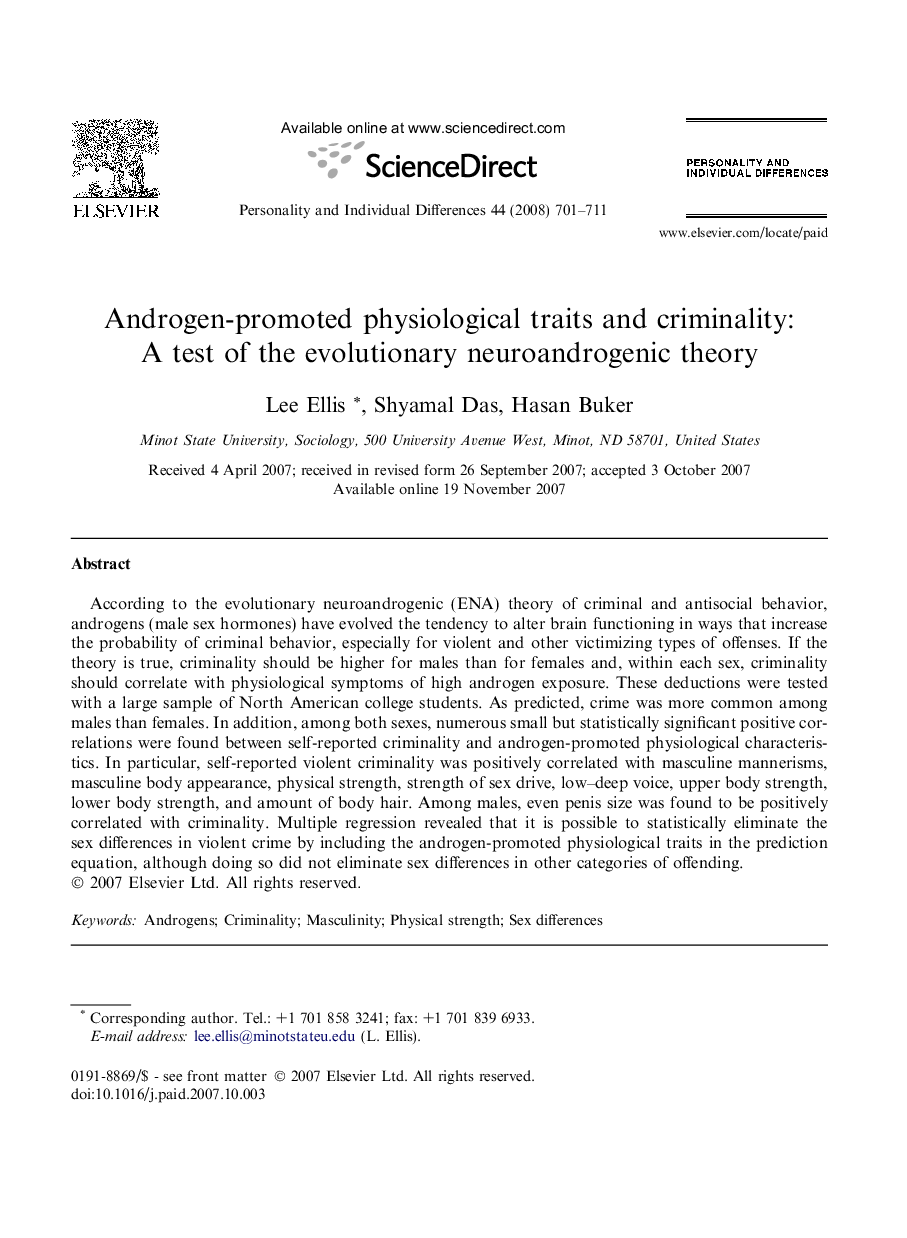| کد مقاله | کد نشریه | سال انتشار | مقاله انگلیسی | نسخه تمام متن |
|---|---|---|---|---|
| 892809 | 914098 | 2008 | 11 صفحه PDF | دانلود رایگان |

According to the evolutionary neuroandrogenic (ENA) theory of criminal and antisocial behavior, androgens (male sex hormones) have evolved the tendency to alter brain functioning in ways that increase the probability of criminal behavior, especially for violent and other victimizing types of offenses. If the theory is true, criminality should be higher for males than for females and, within each sex, criminality should correlate with physiological symptoms of high androgen exposure. These deductions were tested with a large sample of North American college students. As predicted, crime was more common among males than females. In addition, among both sexes, numerous small but statistically significant positive correlations were found between self-reported criminality and androgen-promoted physiological characteristics. In particular, self-reported violent criminality was positively correlated with masculine mannerisms, masculine body appearance, physical strength, strength of sex drive, low–deep voice, upper body strength, lower body strength, and amount of body hair. Among males, even penis size was found to be positively correlated with criminality. Multiple regression revealed that it is possible to statistically eliminate the sex differences in violent crime by including the androgen-promoted physiological traits in the prediction equation, although doing so did not eliminate sex differences in other categories of offending.
Journal: Personality and Individual Differences - Volume 44, Issue 3, February 2008, Pages 701–711